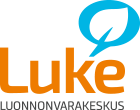Naseva – the Centralised Health Care Register for Finnish Cattle Herds
Naseva is a health care register maintained by the dairy industry and slaughterhouses. It enables dairies, slaughterhouses, cattle farms, veterinarians and other authorised partners to document, manage and develop information and measures related to food safety, animal health and welfare. Slaughterhouses and dairies authorised by farmers have access to farm data. Accession to the system is voluntary. At the end of 2015, 58% and, in 2017, as many as 62% of cattle farms had joined. According to the latest statistics, 7,400 farms are involved in cattle health care. Naseva therefore covers 66% of all farms and 74.6% of dairy farms. Naseva is managed by the Association for Animal Disease Prevention ETT.
Finnish milk and cattle farms in Naseva
| 2015 | 1.2.2018 | |||||
| Number of animals | Farms total | Farms in Naseva | Share of Naseva of all farms (%) | Farms total | Farms in Naseva | Share of Naseva of all farms (%) |
| alle 25 | 2656 | 483 | 18 | 2237 | 583 | 26 |
| 25-50 | 3649 | 1953 | 54 | 3021 | 2033 | 67 |
| 51-100 | 3418 | 2494 | 73 | 3098 | 2540 | 82 |
| 101-200 | 1853 | 1597 | 86 | 1779 | 1646 | 93 |
| yli 200 | 721 | 652 | 90 | 783 | 729 | 93 |
| yhteensä | 12297 | 7179 | 58 | 10918 | 7531 | 69 |
Source: ETT, Food Chain Project 2015-2017 final report, Link to report
Naseva’s aim is to promote the implementation of health care at national level on Finnish cattle farms and to develop and maintain a database of cattle farms which have joined the national health care system. Naseva includes summary reports on mastitis infection findings and reports on animal transport and mortality for the farm, as well as meat inspection data. Research findings of infectious diseases are also recorded in Naseva. Naseva also helps to monitor the use of medication and the reasons for it.
In accordance with the Health Care Agreement, a veterinarian will perform an annual healthcare review and plan at least once a year on the farm, storing the information gained in the register. Naseva helps to track health care visits to farms. These visits entail using adapted Welfare Quality® principles to assess the circumstances, health and behaviour of different age groups. In addition, the visit focuses on the occurrence of contagious diseases, disease protection measures, feed hygiene and the management of residues.
Systematic production and health monitoring is performed on the farm. The farm complies with statutory requirements for veterinary medication and treatment. After the withdrawal period of antibiotic treatment, the milk of the dairy cow involved is tested to ensure that it is free from residue, using a test approved by the Finnish Food Safety Authority Evira, and the result of the test is recorded. The farm complies with animal welfare regulations, which is documented by the veterinarian during the health care visit. No animals on the farm excrete the bovine viral diarrhoea (BVD) virus and no salmonella infections have been reported.
Quality is based on statutory issues concerning medication, the conditions in which the animals are kept, and milk production hygiene. National quality factors that exceed the statutory standards are based on traditional Finnish methods of dealing with residues and disease management, the technical and perceived quality of milk and meat, and the health care activities of the farm and veterinarian. One of Naseva’s tasks is to document the quality data produced by health care.
Photo in upper edge: Aarno Isomäki
